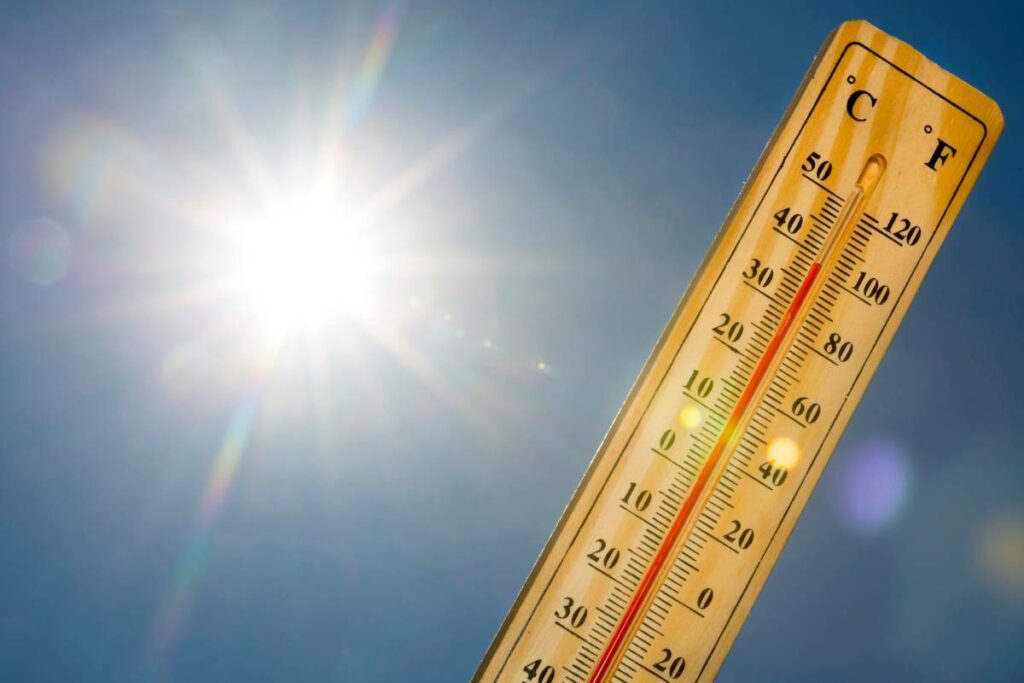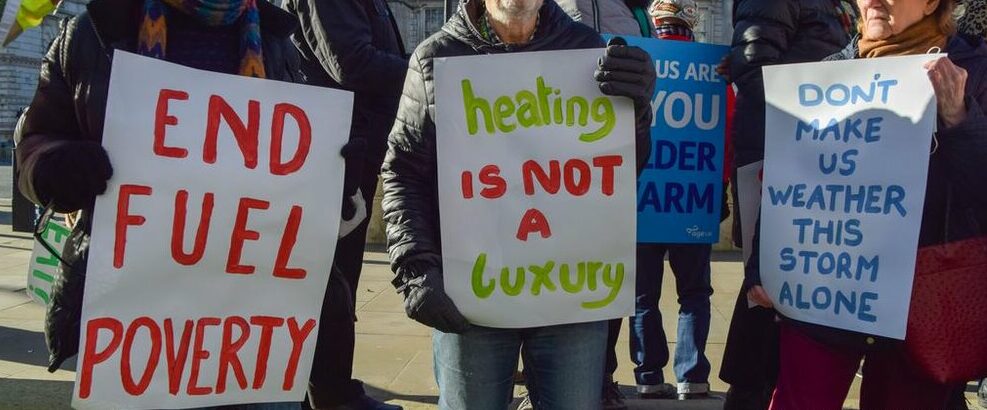Britain’s Daily Mail took a break from reporting about UK households struggling to afford heat to warn that “29M US households ALREADY cannot pay bills and families are buying fewer groceries to keep the lights on — study says cold weather and rising costs will deepen the crisis”. There’s something of a red-blue divide here, with the Mail saying “The research exposes fault lines across the US, with southern Republican-leaning states like Texas, Mississippi and West Virginia home to larger numbers of struggling families while Washington DC, Vermont and Delaware are the least affected.” Which might be because the Democrats are increasingly the party of prosperous coastal elites and Republicans that of the struggling hinterland. Though if you’re wondering what denialistic outfit provided those numbers, it was the U.S. Census Bureau, which the Mail says also found “that many more American families — 43 million households — have cut back spending on groceries, medicine and doctors’ visits, so they could settle an energy bill.” In what is, or was, the most advanced economy in the world. How’s that energy transition working for you?
Excuses proliferate like that it’s because of the war in Ukraine. But it’s not. Nor is it some WEF plot. It’s something Western politicians boasted of doing, even campaigned on. In the National Post satirist Rex Murphy reminds us that Joe Biden, who thrashed about in the runup to the just-concluded Congressional midterm elections blaming oil companies for the shortage of oil campaigned in 2020 promising a shortage of oil.
Specifically, Murphy quotes, his “Plan for a Clean Energy Revolution” said:
“Day 1 of the Biden Administration is going to be very busy! To immediately make progress on his climate agenda, (I) will take actions including requiring aggressive methane pollution limits for new and existing oil and gas operations; developing rigorous new fuel economy standards aimed at ensuring 100 per cent of new sales for light- and medium-duty vehicles will be zero emissions and annual improvements for heavy duty vehicles… and banning new oil and gas leasing on public lands and waters.”
We further note the pledge in that document to “Work with Congress to enact in 2021, President Biden’s first year in office, legislation that, by the end of his first term, puts us on an irreversible path to achieve economy-wide net-zero emissions no later than 2050. The legislation must require polluters to bear the full cost of the carbon pollution they are emitting.” As economists never tire of saying, and the audience quickly tires of hearing, you cannot make companies “bear the full cost” of anything because they are legal fictions. It is people who pay taxes, in this case customers through higher prices, employees through lower wages, salaries and benefits, and shareholders through smaller dividends.
The plan also said “Biden will invest $400 billion over ten years, as one part of a broad mobilization of public investment, in clean energy and innovation.” We didn’t know he had that much money, even with his son’s remarkably lucrative business career. More probably taxpayers were going to be on the hook for it. But who’s aware of the distinction nowadays?
While Biden was blithering on the campaign trail, his plan also said:
“In his first 100 days in office, Biden will convene a climate world summit to directly engage the leaders of the major greenhouse gas-emitting nations of the world to persuade them to join the United States in making more ambitious national pledges, above and beyond the commitments they have already made. Biden will not allow other nations, including China, to game the system…”
How’s that one going? The White House boasts that:
“President Biden convened 40 world leaders in a virtual Leaders Summit on Climate this week to rally the world in tackling the climate crisis and meeting the demands of science. The United States and other countries announced ambitious new climate targets ensuring that nations accounting for half of the world’s economy have now committed to the emission reductions needed globally to keep the goal of limiting global warming to 1.5-degrees C within reach.”
Oh really? Then why the November 3, 2022 The Economist email teaser “Why we have to say goodbye to 1.5°C”? (Sorry, no link available, but the story gives the same flavour.) It’s hard to find anyone, enthusiast or skeptic, who thinks those reductions are under way. Or that a virtual summit was anything other than PR.
There’s one small puzzle in the story. Apparently:
“The average [American] household will spend about $931 on gas heat this winter and about $1,359 for electric heat, the EIA [US Energy Information Administration] said. That’s a 28 percent increase for gas and a 10 percent increase for electricity compared to last year. About 90 percent of America’s 130 million households rely on natural gas or electricity for heat…. Homes using heating oil will spend about $2,354 for heat this winter, up 27 percent from last year… Despite the big increase in cost, gas will remain the nation’s cheapest source of heat”.
So what’s the puzzle? Why, it’s that we keep hearing from transition enthusiasts that alternative energy is now cheaper than the conventional kind. So why is gas cheapest, not solar or something?
Oh right. They were imagining it. Thus we hear that Europe’s ongoing deindustrialization in response to the war not on Ukraine but on affordable energy includes:
“Energy-intensive industries, such as aluminium, fertilisers, and chemicals are at risk of companies permanently shifting production to locations where cheap energy abounds, such as the United States. Even as an unusually warm October and projections of a mild winter helped drive prices lower, natural gas in the United States still costs about a fifth what companies pay in Europe.”
In Canada, too, the solution to expensive energy is to make it costlier. A new study, from the advocacy group Canadians for Affordable Energy, says that the new federal “clean fuel” regulations alone will directly and indirectly cost over $1,200 per employed person per year. And Canada’s mental pretzel of a Prime Minister managed back in October, while congratulating Alberta’s new Premier through gritted teeth, to claim that:
“We will remain focused on delivering concrete results for Albertans – including making life more affordable, growing the economy for everyone, creating jobs, and fighting climate change while positioning Canada’s energy sector and its workers to succeed in new global markets.”
(Parenthetically it is remarkable about how nearly every press release from Justin Trudeau, regardless of ostensible subject, quickly pivots to how great he is.)
As Joel Kotkin put it in the National Post with considerable vigour:
“The current crisis around inflation, a probable recession, rising heating costs and electricity prices, with increases in Canada of upwards of 50 percent or more, as well [as] soaring food prices are clearly shaped by global forces. But the economic crisis also has roots in the well-financed green movement’s war on fossil fuels. These turn out to be critical to such industries as manufacturing and logistics while the drive to ban natural gas based fertilizers constitutes a gun at the head at the farms that feed the world.”
Nevertheless, the usual hallucinators are still hallucinating a smooth transition to lower-cost renewables. For instance, Canary Media’s take on Americans skipping groceries to heat their homes is that we just need to go electric:
“Climate advocates are calling for heating systems to be electrified (read: heat pumps!) and for electricity to be generated from clean sources instead of gas and other fossil fuels. That would not only slow climate change but also make heating more affordable by freeing people from the yoke of volatile natural-gas prices.”
Aka free them from the yoke of the most affordable energy in the country. Which the politicians were already doing a great job at.



Go to heat pumps - that don't work under 3.8 degrees C. So more expensive energy to keep colder in winter. Am I missing something? At least Germany is removing wind turbines to get at the coal underneath - though it is probably the worst Lignite, poor heat output and massive polution.
And ironically they have large deposits of natural gas they refuse to tap.
I never imagined that Climate Change would be a killer so soon. No need to reach 1.5C when you can starve and freeze people to death through policy decisions that would have looked stupid 20 years ago.
I plan to remain tethered to the "yoke" of gas. Propane in my rural case. No nat gas available. But, needing a new furnace, I recently investigated heat pumps. One brand claims to work to -10C. Another to -30C. But, in both cases, you still need to purchase an electric or gas furnace for backup. It's gone below -30C once in the ten years I've lived here. By one degree. So I think I should be able to get by with the -30C system but not getting the e-furnace with the heat pump is not an option in that case. So, I remain skeptical. But mostly, I don't like the price. Three to four times that of just a propane furnace, even after $5k government rebate for "green" system. So, I'll cringe at the ever-increasing carbon tax levies and hope for a new government that does things that make sense. Oh, and, more than anything, burn wood. No carbon tax. Just lots of work. But you have to keep in shape somehow.
"... keep the goal of limiting global warming to 1.5-degrees C within reach.”. What an idiotic goal. Nobody knows for sure what caused the little ice age. If 2050 turns out to be a repeat of the little ice age that 1.5-degrees C would be a huge benefit.
Natural gas is a clean source of energy; it is colorless, odorless; it is so clean you can see right through it. Natural gas is another name for unicorn farts.
Europe's dependence on Russian natural gas is surpassed only by North America's dependence on China's coal, which is baked into everything we buy from there. If we were serious about reducing global emissions, we would ban imports of manufactured goods from China, including solar panels, wind turbines, and batteries.